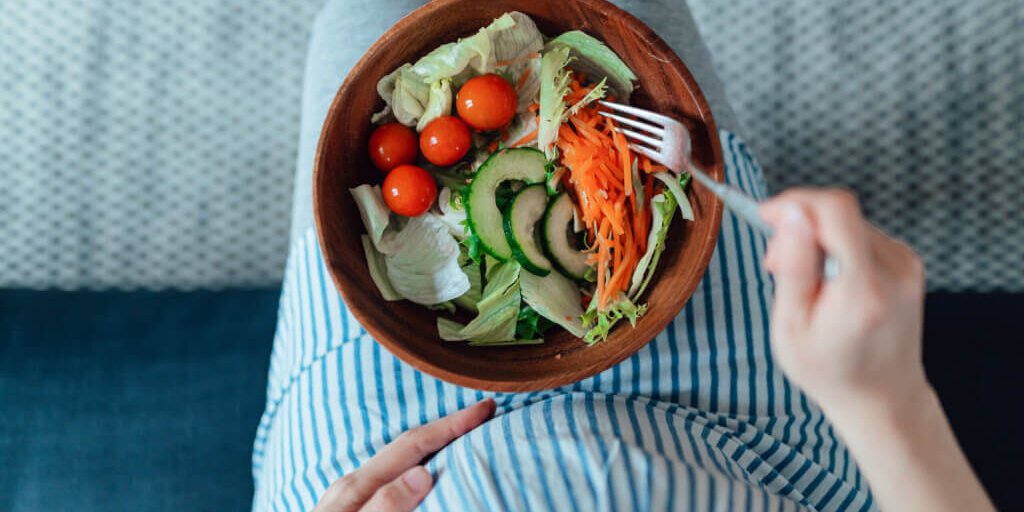Nourishing your body to support you and your baby, every step of the way
Key Nutrients and Habits That Support Mom and Baby
Quality nutrition is essential throughout life, but it becomes especially important before and during pregnancy. A woman’s nutritional status can influence fertility, fetal development, and long-term health outcomes for both mother and baby. Establishing healthy habits early and focusing on key nutrients can help support a healthier pregnancy and beyond.
1. Get a Head Start Before Pregnancy
Even before becoming pregnant, a woman’s nutrition, weight, and overall fitness can impact fertility and the health of future pregnancies. If you’re trying to conceive, focus on a balanced diet rich in fruits, vegetables, fiber, lean protein, and healthy fats. Antioxidants such as vitamins C, E, and selenium also help protect reproductive cells from oxidative stress.
2. Prioritize Folate and Vitamin B12
Folate, also known as folic acid, is one of the most important nutrients before and during early pregnancy. Daily supplementation with 400–800 mcg of folic acid has been shown to significantly reduce the risk of neural tube defects. Folate and vitamin B12 also support healthy neurocognitive and cardiovascular development. Because nearly half of all pregnancies are unplanned, women of childbearing age should take a daily multivitamin containing adequate folic acid, even if pregnancy is not currently planned.
3. Get Enough Vitamin A
Vitamin A plays a critical role in immune function, as well as reproductive and fetal development. Adequate intake supports healthy cell growth and development throughout pregnancy. Experts generally recommend between 2,500 and 8,000 international units per day.
4. Don’t Overlook Vitamin D
Vitamin D is essential for a healthy pregnancy and plays an important role in fetal brain development and calcium absorption. Many women require supplementation to correct deficiencies. Vitamin D remains especially important during breastfeeding, as low maternal levels can result in very low vitamin D content in breast milk.
5. Focus on High-Quality Protein and Healthy Fats
As your body builds another human, your protein needs increase. High-quality lean protein sources such as soy, egg whites, lean meats, and milk help support tissue growth and development. Healthy fats are equally important, particularly Omega-3 fatty acids. EPA supports the heart and immune system, while DHA is vital for the development of the baby’s brain, eyes, and central nervous system.
6. Support Pregnancy with Essential Minerals
Minerals play a crucial role during pregnancy. Iron is necessary for the production of hemoglobin and myoglobin, which transport oxygen to the baby. Research suggests that supplementing with iron and folic acid can offer protective benefits later in life. Calcium, zinc, and magnesium support the development of healthy bones and teeth in the baby while helping preserve the mother’s bone density.
7. Make Iodine a Priority
Iodine is an essential trace mineral needed to produce thyroid hormones, which regulate growth and development throughout life. During pregnancy and lactation, iodine requirements increase. Adequate iodine intake supports the baby’s mental and physical development, with experts recommending approximately 200 micrograms of supplemental iodine.
8. Get the Extra Calories You Need—Wisely
Pregnant and lactating women typically need about 300 additional calories per day. Rather than simply eating more, focus on nutrient-dense foods that provide vitamins, minerals, protein, and healthy fats. Limiting fast food and maintaining a balanced intake of carbohydrates, fats, and protein helps ensure both calorie and nutrient needs are met.
Supporting a Healthy Pregnancy Through Nutrition
Developing healthy nutrition habits during the childbearing years can have lasting benefits for both mother and baby. By prioritizing whole foods and targeted supplementation, women can help support a healthier pregnancy and give their baby the best possible start in life.






